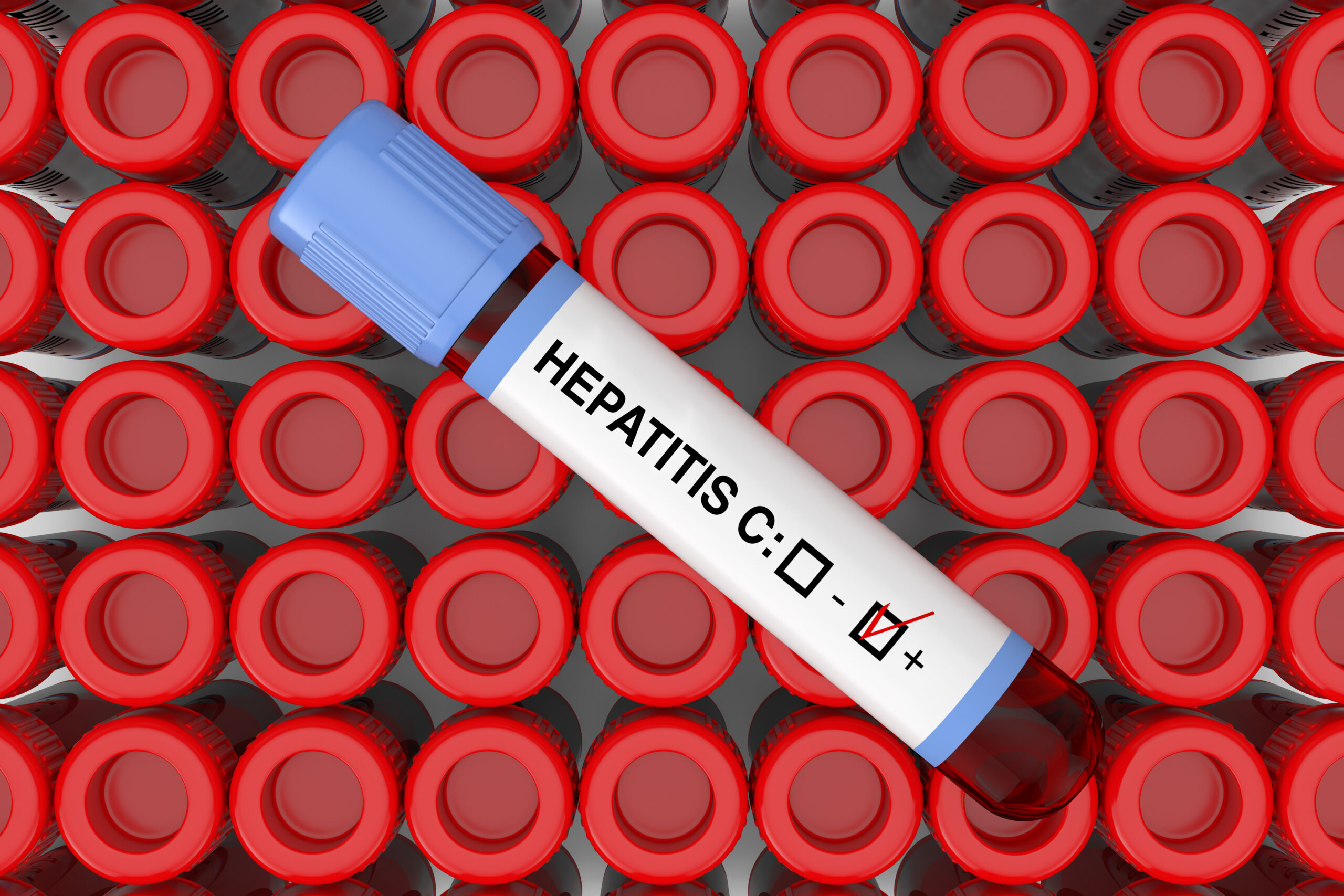MIND YOUR LIVER. IT NEEDS YOU. ™
Hepatitis C is still a major liver risk, often spread through IV drug use or unprotected sex, and it often goes undetected for years.

Hepatitis C is a virus that spreads through blood and affects the liver. It can cause inflammation, scarring, and over time, serious liver damage , that often stays without symptoms for years.
Hepatitis C spreads when infected blood enters the bloodstream. This can happen through needles, tattoos, or even shared hygiene tools.
Once in the body, the virus multiplies inside the liver and causes inflammation. If untreated, this can lead to permanent damage.
Modern treatments can fully clear the virus from your body. Most people can be cured in just 8 to 12 weeks with daily medication.
Most people have no symptoms for years. It’s often found by accident through bloodwork.
You can’t get it from hugging, kissing, or sharing food.
Over time, the virus can cause fibrosis, cirrhosis, or even liver cancer.
A blood test can check if you’ve ever had the virus and whether it’s still active.
Antiviral treatment clears the virus in most people with no injections needed.
This page is educational. It’s not a substitute for medical care. If you’re worried about your liver or have symptoms, talk to your provider. You deserve real answers and support.
This is still the most common way people get infected. Even from just one use.
If the tools aren’t properly sterilized, the virus can pass from person to person.
Razors, toothbrushes, or nail clippers with small blood traces can also be a source.
Even if it’s occasional or experimental, it carries high risk.
Always check for licenses and sterilization standards.
Blood isn’t always visible, but it can still carry the virus.
Hep C can be transmitted through medical or dental procedures with poor sterilization.
It’s rare, but possible. Screening during pregnancy is important.
Hepatitis C often shows no symptoms until the liver is already affected. That’s why many people live with it for years without knowing.
It takes time to cause enough liver damage to trigger symptoms. Often decades.
Fatigue, mild nausea, or aches are easy to ignore or blame on something else.
Basic liver function tests or hepatitis panels can reveal it before major damage happens.
Most people feel fine — especially at first.
You usually need to ask for the test unless you’re in a high-risk group.
You might not notice anything until it’s already progressed.
Doctors may assume low risk in younger people unless they ask.
If exposure happened years ago or wasn’t obvious, it may not be on their radar.
Some drugs affect the liver directly, while others increase risk by introducing infections like hepatitis C. Understanding how different substances interact with the liver is key to reducing harm.
They can introduce viruses like Hep C and also stress the liver directly through toxins.
Street drugs are often cut with unknown chemicals that increase toxicity.
Combining substances, especially with alcohol, multiplies liver strain.
This includes hepatitis C, HIV, and bacterial infections.
You can’t see what’s mixed in — some additives are toxic to liver cells.
Alcohol, Tylenol, and other drugs combined increase liver workload.
The liver has a limit — and overdose can lead to acute failure.
Sudden shifts can cause temporary liver stress during recovery.
Testing for hepatitis C is easy, but many people avoid it because of fear or shame. Bringing it out into the open helps people get treated and stay healthy.
You don’t need symptoms to get tested. Results are usually available within a week.
Fear of being judged can keep people from accessing care, especially if they’ve used drugs.
Getting tested is a step towards a healthier future.
It means you care about your health.
It’s recommended for everyone at least once.
Not from symptoms.
Walk-in clinics and local health units can test confidentially.
There’s no downside to knowing.
Hepatitis C is one of the few chronic conditions that’s now curable. Treatment is fast, effective, and more accessible than ever.
New antivirals work within weeks and have very few side effects.
That means the virus is cleared from your body completely. For good.
You avoid long-term liver damage and have fewer barriers to recovery.
It’s simple and does not involve injections.
Many family doctors can prescribe treatment now.
Most people report feeling fine during treatment.
Access is improving, and help is available.
Clearing the virus means you’re no longer infectious.
If you’ve ever shared equipment, had a risky exposure, or are just unsure — talk to a doctor. They can help you check your liver and get tested safely.
You won’t get judged. Clear info helps doctors give you better care.
Routine bloodwork and a hepatitis panel can tell you a lot.
If there’s a connection between drug use and emotional health, bring that into the conversation.
Ask clearly. It’s a standard blood test.
Ask for liver enzyme levels and maybe an ultrasound if needed.
Tell them what you’ve done or been through — even once.
Yes. Don’t wait. The sooner you ask, the sooner you start.
Ask for support, checkups, and strategies for moving forward.
We use cookies to improve your experience on our site. By using our site, you consent to cookies.
Manage your cookie preferences below:
Essential cookies enable basic functions and are necessary for the proper function of the website.
You can find more information in our Privacy Policy and Privacy Policy.
